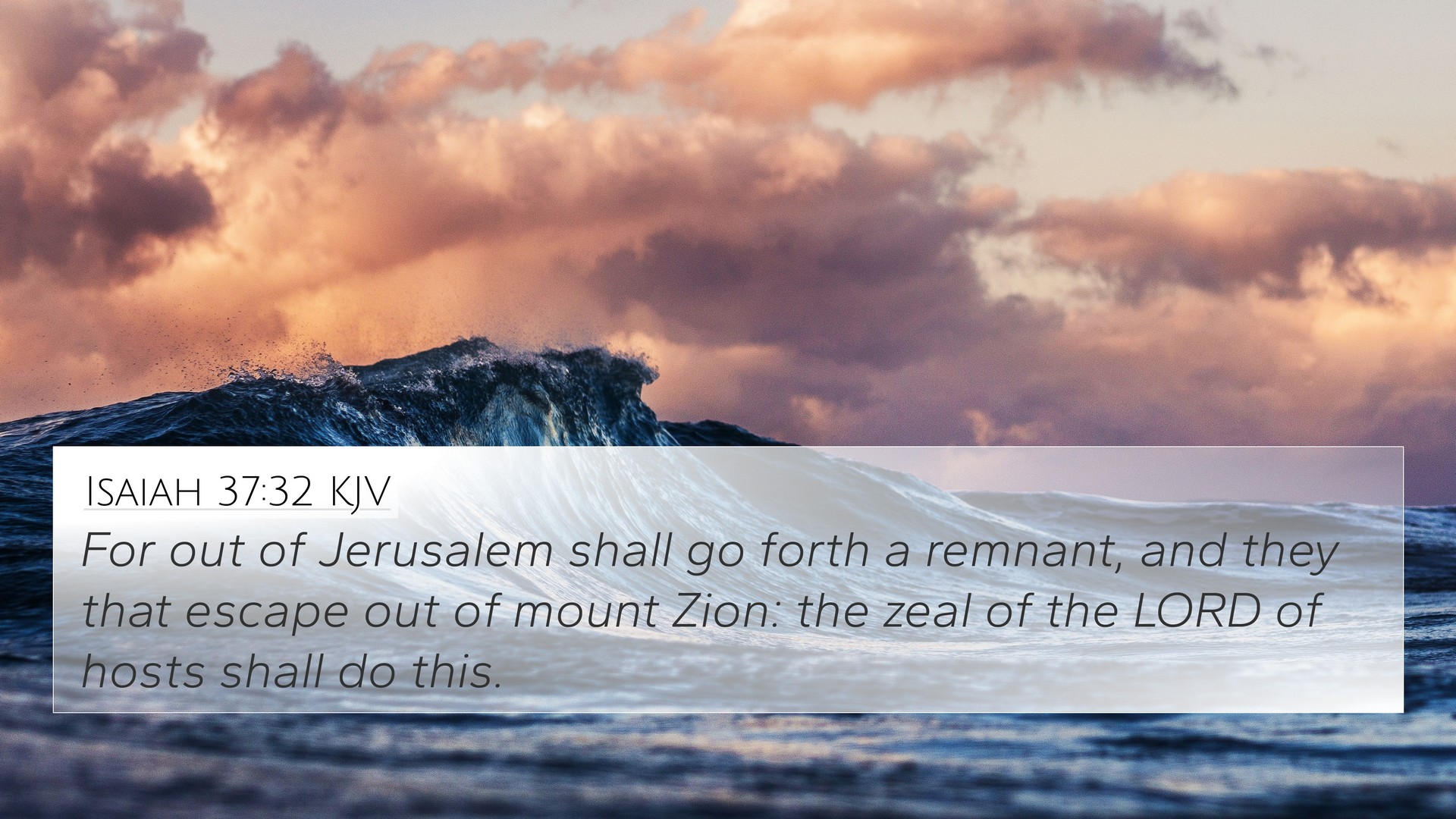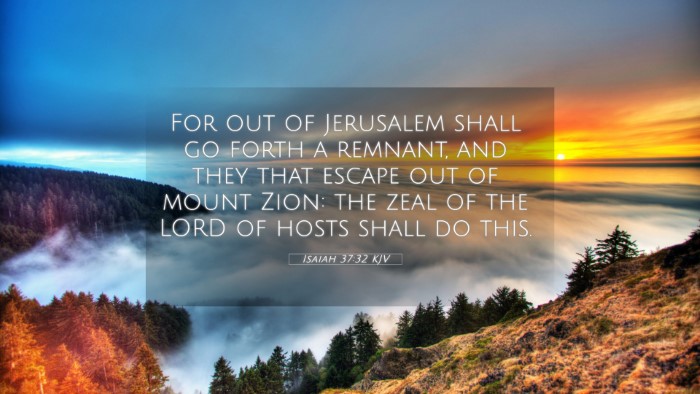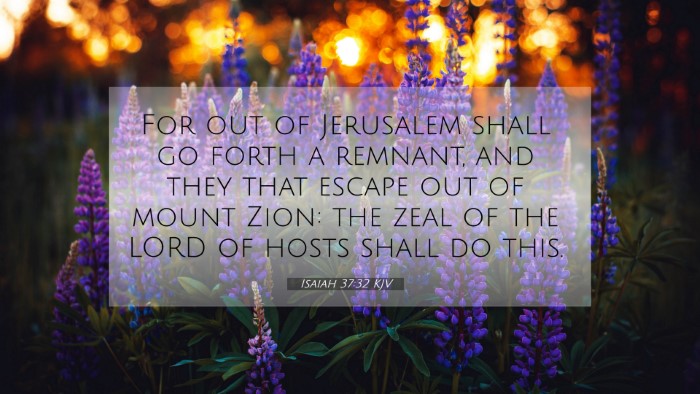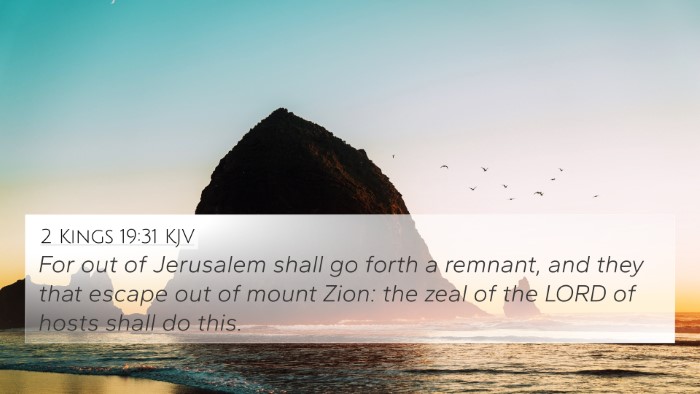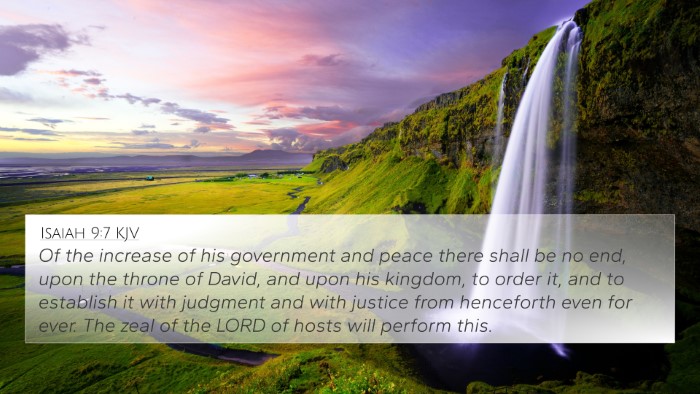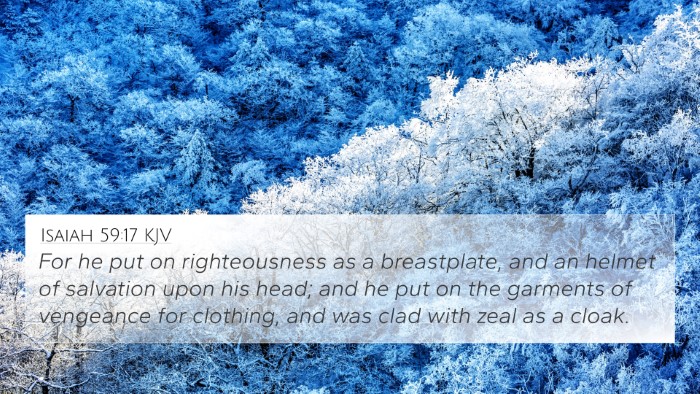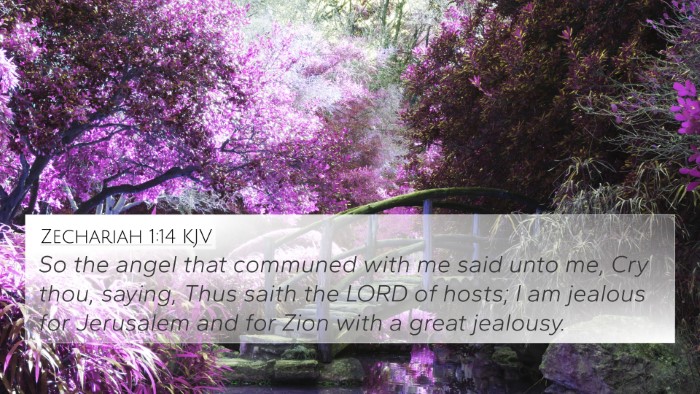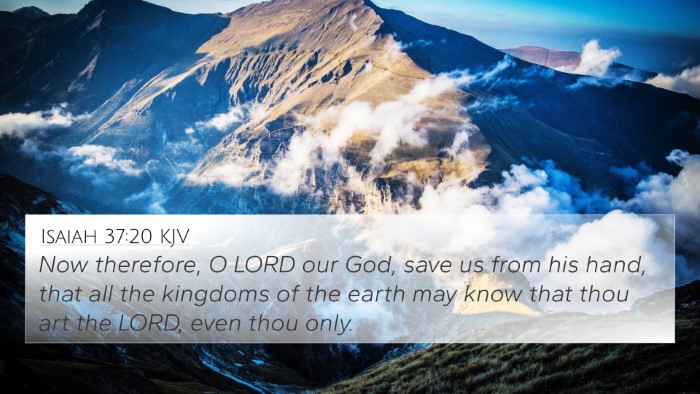Understanding Isaiah 37:32
Isaiah 37:32 states: "For out of Jerusalem shall go forth a remnant, and they that escape out of mount Zion: the zeal of the Lord of hosts shall do this." This verse underscores a powerful message concerning divine deliverance and the enduring hope that resides in God's faithful remnant.
Historical Context
This verse occurs in the context of King Hezekiah's reign, amidst the siege of Jerusalem by the Assyrian king Sennacherib. The Israelites faced dire circumstances, and this proclaiming verse serves as a reassurance from God concerning their fate.
Key Themes
- Divine Preservation: Recognizing a remnant signifies God's commitment to preserve His people even in challenging times.
- Hope and Deliverance: The promise of survival through God's zeal highlights a theme of hope, emphasizing that God intervenes in human affairs to ensure the sustenance of faith.
- Divine Sovereignty: The reference to God's authority connects with the idea that He rules over all nations and events.
Cross-References
To enrich the understanding of Isaiah 37:32, consider the following cross-references:
- Isaiah 1:9 - "Except the Lord of hosts had left unto us a very small remnant, we should have been as Sodom, and we should have been like unto Gomorrah."
- Isaiah 10:20 - "And it shall come to pass in that day, that the remnant of Israel, and such as are escaped of the house of Jacob, shall no more stay upon him that smote them."
- Isaiah 11:11 - "And it shall come to pass in that day, that the Lord shall set his hand again the second time to recover the remnant of his people."
- Romans 9:27 - "Isaiah also crieth concerning Israel, Though the number of the children of Israel be as the sand of the sea, a remnant shall be saved."
- Matthew 24:22 - "And except those days should be shortened, there should no flesh be saved: but for the elect's sake those days shall be shortened."
- Revelation 12:17 - "And the dragon was wroth with the woman, and went to make war with the remnant of her seed, which keep the commandments of God, and have the testimony of Jesus Christ."
- Jeremiah 31:7 - "For thus saith the Lord; Sing with gladness for Jacob, and shout among the chief of the nations: publish ye, praise ye, and say, O Lord, save thy people, the remnant of Israel."
Insights from Public Domain Commentaries
Bringing together insights from well-known Bible commentators:
Matthew Henry: He emphasizes the significance of God's promise to preserve a remnant, indicating that even amidst judgment, God’s mercy prevails, ensuring a continuation of His covenantal relationship with His people.
Albert Barnes: Barnes notes that the term "remnant" offers hope and signifies that despite overwhelming odds, God's chosen will endure. His fervent zeal ensures their deliverance which serves to highlight God's unwavering commitment to His promises.
Adam Clarke: Clarke discusses the broader implications of divine intervention. He points out that God’s providence always has a plan for redemption and restoration, offering believers today a reminder of God's faithfulness regardless of their present circumstances.
Thematic Analysis
This verse prompts a comparative analysis of Biblical themes surrounding remnant theology, which signifies God’s sustaining presence through trials. The remnant becomes a symbol of God's faithfulness across both testaments, echoing similar assertions found throughout scripture.
Connecting Isaiah 37:32 with Other Scriptures
When exploring connections between Bible verses, one can notice an inter-Biblical dialogue regarding divine deliverance. Isaiah's assurance resonates with New Testament themes where God's grace continues to reveal pathways of redemption.
This highlights the effectiveness of tools for Bible cross-referencing, showcasing how Isaiah 37:32 can be understood in light of Scriptures surrounding God's promises and redemption across both the Old and New Testaments.
Applications for Today
The message of Isaiah 37:32 remains relevant, suggesting that believers today can find solace in the knowledge that God watches over His people, safeguarding a faithful remnant even in turbulent times. It encourages a faith that trusts in divine sovereignty and hope amid adversity.
Conclusion
Isaiah 37:32 richly layers insights regarding God's unwavering commitment to His people through the concept of the remnant, showcasing His power to deliver amid trials. By exploring cross-references, one can appreciate the holistic message of hope that permeates the Biblical narrative.
